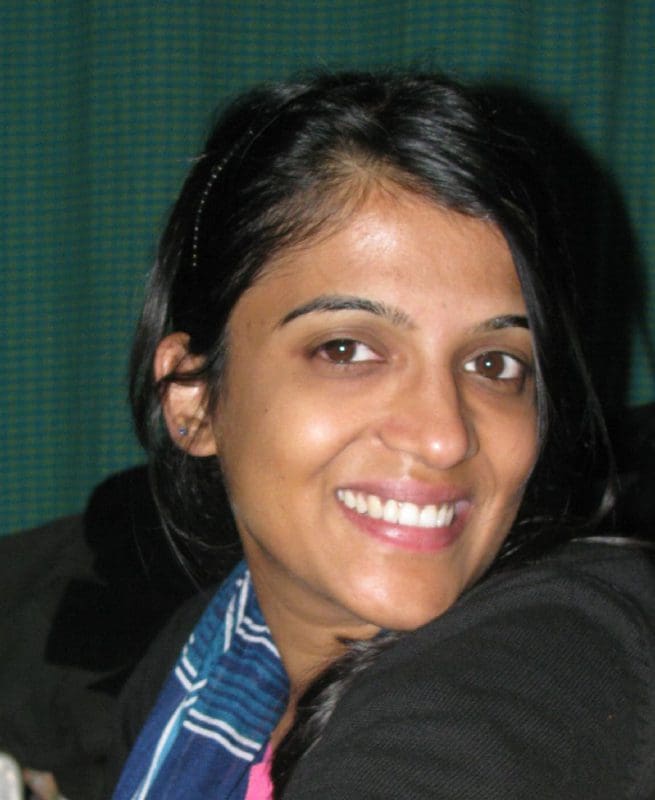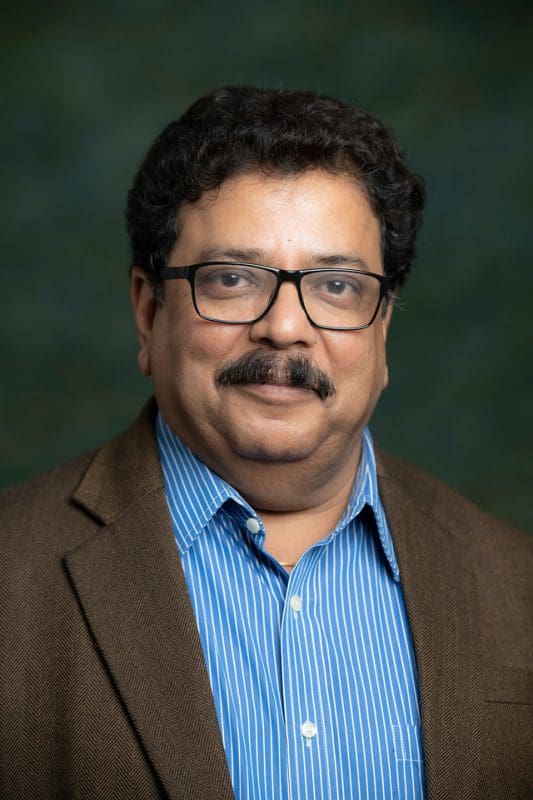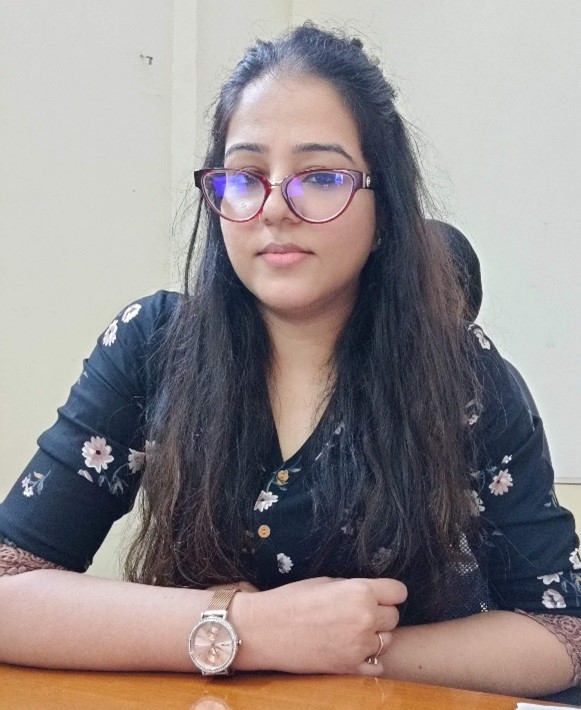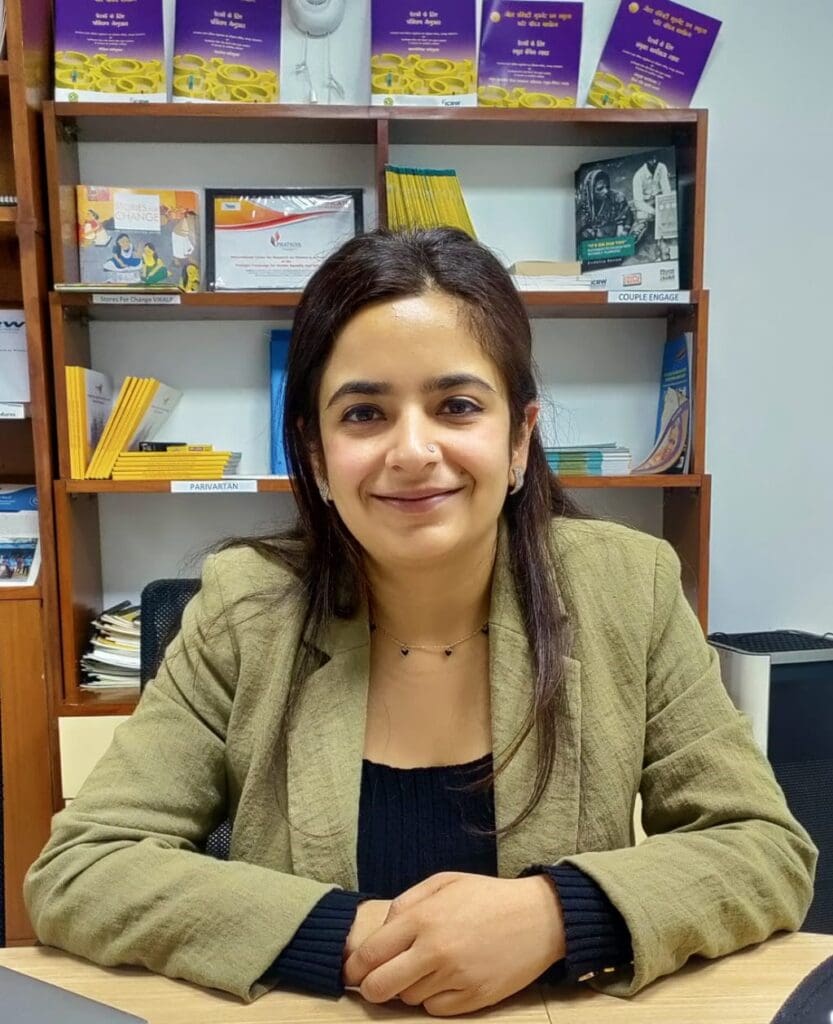
“Chingaari”: A Gender Transformative Leadership Capacity Building Program
November 2024 - December 2025
Women in Global Health
Women remain underrepresented in leadership roles in the health sector globally, including in India. Despite making up 29% of medical doctors and 80% of nursing staff, only 18% hold leadership positions due to institutional barriers such as unequal access to resources, inequitable work policies, gender bias, and a significant pay gap of 34% (Dasra, 2023). Lack of mentorship and skill development opportunities exacerbate self-doubt and imposter syndrome. Women are also disproportionately assigned caregiving and administrative roles. Societal expectations, household responsibilities, and heavy burdens of unpaid care work further limit their career growth. Within the healthcare ecosystem, Community Based Organisations (CBOs) are important stakeholders in the healthcare ecosystem in India as they deliver services and interventions to the most vulnerable and marginalized sections of India. However, there is a lack of gender diverse leadership in these organisations and organisational culture emphasize masculine traits like aggression, competition, rigid gender roles, and microaggressions which hinders women’s confidence and professional development. Further, poor gender diversity at the leadership level prevents CBOs from understanding the diverse needs of the communities they serve and thus, results in health policies and programs becoming less inclusive and equitable. Finally, leadership training programs are largely urban-centric and cater to mid-to-senior-level professionals, leaving young women in Tier 2 and 3 cities with limited opportunities. The existing programs focus solely on individual skills rather than fostering peer networks, institutional change, and community engagement.
ICRW in partnership with Women in Global Health India (WGHI) will design and conduct a Gender Transformative Leadership (GTL) capacity building program ‘Chingaari’ for 50 early- and mid-career healthcare professionals engaged in CBOs in Tier 2 and Tier 3 cities. The program will also deliver workshops for supervisors and colleagues of participants (senior members, direct supervisors, and peers within these organisations). ‘Chingaari’ will run for six months and will adopt a hybrid format.
Participants will undergo approximately 12 online capacity building sessions of about two to three hours each and a two-day in-person workshop to maximize accessibility and engagement. The curriculum will be delivered in a mix of Hindi and English.
WHAT ARE WE SETTING OUT TO DO?
- The capacity building program aims to build perspectives on principles of feminist leadership, gender at the workplace, and a rights-based approach to healthcare and to improve skills of participants, such as, communication, engaging and enabling others at the workplace and the community, conflict resolution, and leadership styles to name a few.
- The long-term goals of the capacity building program are to improve women’s ability to navigate and influence change in organisational systems and the healthcare sector using GTL and intersectional methods and increase growth and effectiveness of peer-to-peer networks of women in the sector.
- The research arm of the project will aim to understand what works and what doesn’t work in the processes used for the capacity building program and their effectiveness in promoting feminist leadership, capture experiences of participants, their peers and supervisors, and assess the learning outcomes of participants.
WHAT METHODS ARE WE USING?
1. Participatory and interactive training pedagogies:
The capacity building sessions will include case studies, exercises, games, simulations, group work, and reflective exercises to foster a deep understanding of the concepts and encourage active participation. The sessions will be grounded in values of mutual respect, ensuring safe spaces, co-learning or collective learning through shared experiences and community building.
2. Peer and community engagement:
As part of the capacity building program, we will engage with supervisors and colleagues of participants through separate sessions designed for them. Participants will be encouraged to undertake campaigns for gender equity at their organisation and community to initiate institutional- and system-level changes. We also aim to strengthen relationships amongst participants by the creation of an informal WhatsApp group or any other informal networking and learning spaces (such as an alumni network).
3. Mixed methods research:
We will employ a mix of quantitative surveys and in-depth interviews with participants to capture their experiences as healthcare professionals and participants, to understand the design and processes of capacity building programs and evaluate learning outcomes. We will use pre- and post-tests, regular feedback forms, and in-depth interviews at baseline and endline with participants. We will triangulate our data using the training pedagogical tools employed (including training notes), reflection journals maintained by both participants and facilitators, and secondary sources.
ICRW will develop and disseminate a GTL toolkit and report, organize dissemination events and write short-form outputs such as articles, op-eds, blogs, etc. We will also conduct workshops and initiate partnership to encourage organisations and government bodies to promote and adopt a similar capacity building program.
Project Consultants:
Shruti Gupta
Biraja Mishra
Neharika Mahajan
Deepika Saluja
Project Team

Sapna Kedia

Ravi Verma

Sakshi Garg

